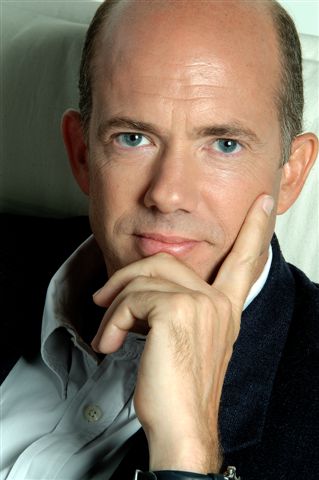Fair Prices for Farmers: Simple Idea, Complex Reality, by Jennifer Alsever, NY Times: Tim Terman always looks for the black and white certified Fair Trade logo when he buys bags of coffee ... He pays nearly twice as much — up to $10 a pound — as he would for conventional coffee, hoping the extra dollars go to struggling farmers. That's not always the case. ... Critics say too many fair trade dollars wind up in the pockets of retailers and middlemen, including nonprofit organizations.
But organizations involved in fair trade say the benefits do trickle down. Paul Rice, chief executive of TransFair USA, which controls Fair Trade certification in the United States, said the programs sometimes eliminate as many as five middlemen — a local buyer, miller, exporter, shipper and importer — and instead allow farmers to deal directly with an American wholesaler... 'When they do that, they can make dramatically higher prices, often two to three times higher.' ...
Fair trade programs, which promise a "fair wage" to family farmers, have grown rapidly. Today, 35,000 retailers and restaurants nationwide ... carry products bearing the fair trade label, an increase of 60 percent in three years. Since 1999, more than 100 million pounds of certified Fair Trade coffee, cocoa, tea, rice, sugar, bananas, mangoes, pineapples and grapes have been imported... "There are now 800,000 small-scale farmers benefiting from fair trade," said Rick Peyser, director of social advocacy at Green Mountain Coffee Roasters... Still, it can be difficult for consumers to quantify the benefit they bring to farmers ... Fair Trade labels don't list the amount paid to farmers; that ... requires research...
The coffee farmer who produced the one-pound bag of coffee purchased by Mr. Terman received $1.26, higher than the commodity rate of $1.10. But whether Mr. Terman paid $10 or $6 for that fair trade coffee, the farmer gets the same $1.26. "There is no reason why fair trade should cost astronomically more than traditional products," Nicole Chettero, a spokeswoman for TransFair USA, said. "We truly believe that the market will work itself out... As the demand and volume of Fair Trade certified products increase, retailers will naturally start to drop prices to remain competitive." ...
Each fair trade commodity has its own fair trade price, or the lowest price farmers will receive even if conventional commodity prices fall. That price is meant to allow them to cover their cost of production and improve their lives...
In some cases, the individual farmers may receive less than fair trade rules require because the money goes to cooperatives, which have their own directors who decide how much to pass on to farmers. "We did a breakdown and saw that sometimes, what they're paying farmers is only 70 cents to 80 cents a pound" for coffee instead of the entire fair trade price of $1.26, said Christy Thorns, a buyer at Allegro Coffee... Transfair, she said, doesn't "clearly communicate that to consumers."
Allegro is among a number of coffee and tea companies setting up their own systems to work directly with farmers ... Starbucks, which bought 11.5 million pounds of fair trade coffee last year, has created a buying program called CAFE, for Coffee and Farmer Equity Practices... Starbucks requires suppliers to provide receipts showing how each party in the supply chain was paid, but it has no fixed price for the coffee. Starbucks' Web site tells consumers about the program. ...
Without fair trade, supporters say, some farmers have no access to market information and can often be duped into selling to middlemen at below-market prices or, if prices fall, can be forced to quit farming. Ms. Chettero acknowledges the fair trade system is not perfect but said it is a step toward farmers improving their lives. If not for consumers and the fair trade system, she said, "Who else is going to do it?"
"
Δεν υπάρχουν σχόλια:
Δημοσίευση σχολίου